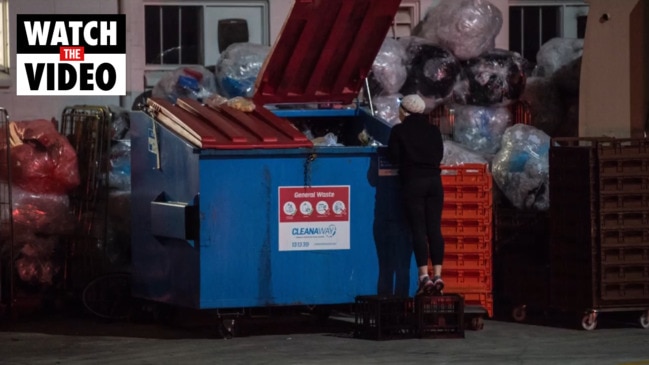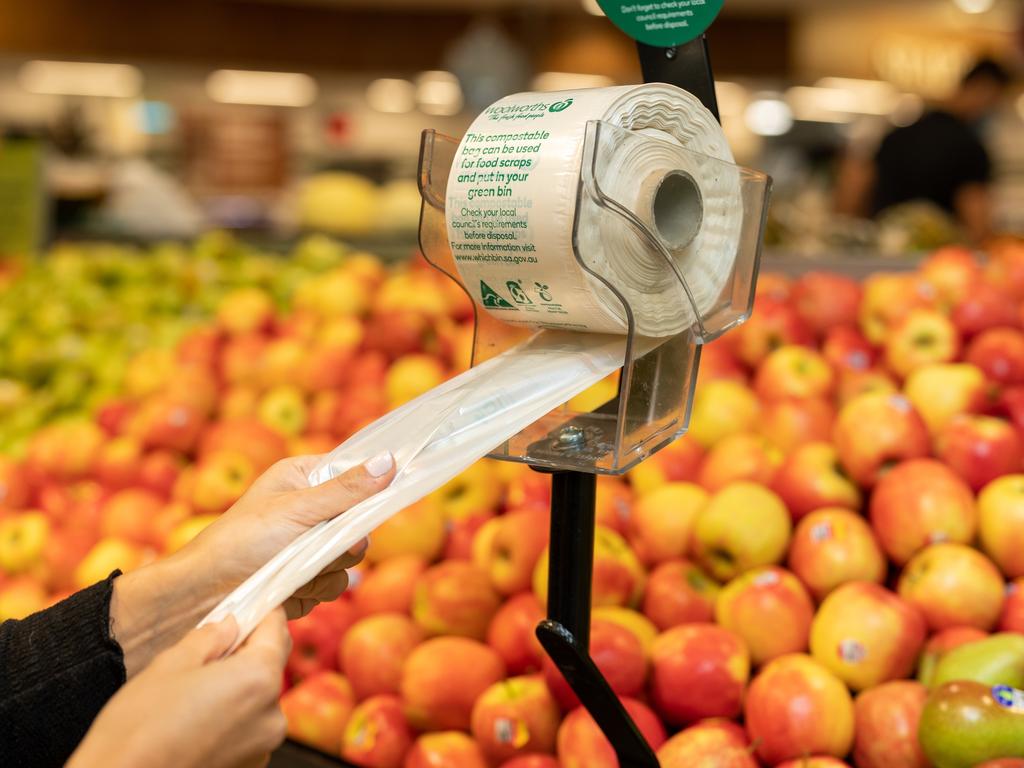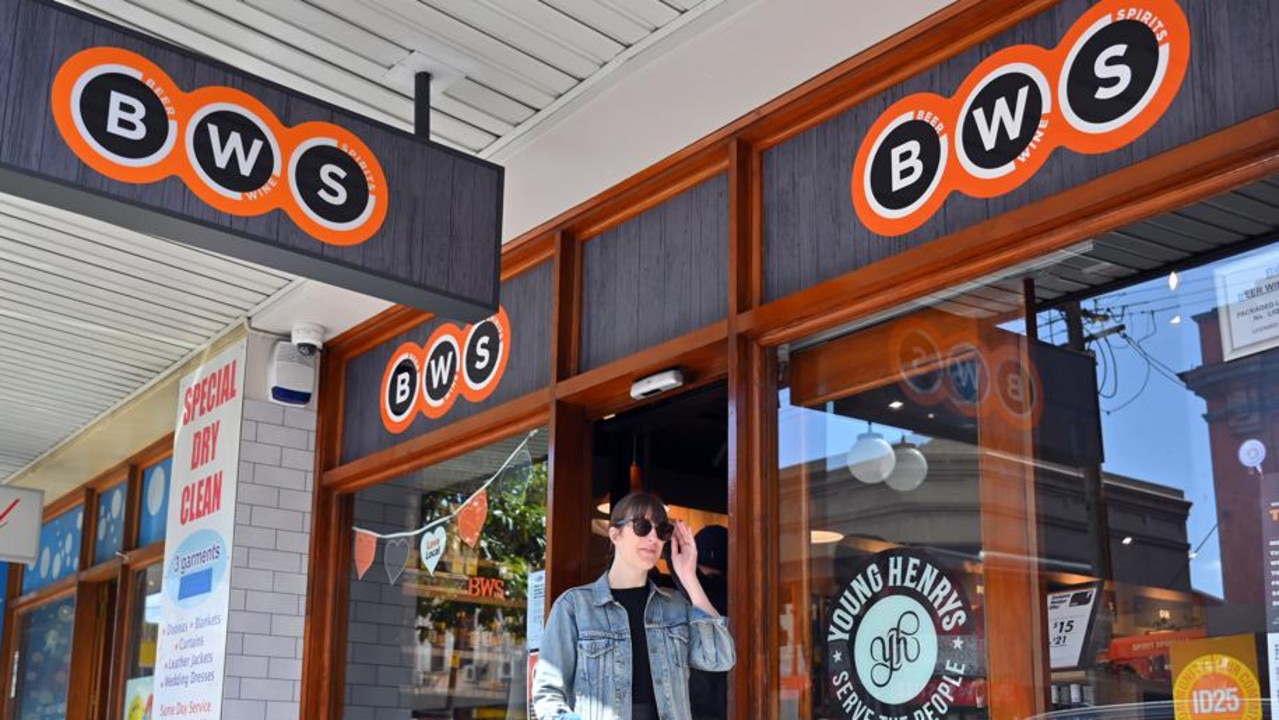Australians forced to ‘dumpster dive’ due to rising cost of groceries, Senate inquiry told
Australians are being forced to take extreme measures in their effort to survive amid the ever-rising cost of groceries.

Australians are being forced to “dumpster dive” to combat the ever-rising cost of groceries, a Senate inquiry in Tasmania has heard.
The first of three public hearings for the inquiry into supermarket pricing, held in Hobart on Thursday, painted a grim outlook of just how much people are struggling to put food on the table – prompting them to steal from Coles and Woolworths or skip meals altogether.
At the same time, Grassroots Action Network Tasmania (GRANT) representative Amelia Cromb told the Senate, the supermarket giants were disposing of “perfectly good produce that is fresh … on a daily basis” – that members of the public are then going to scrounge for.
“It’s quite shocking and telling that this is the brunt of what we’re dealing with,” Ms Cromb said.
“Members of our community who are nurses have reached out to us, and said they’re studying full time, working as nurses and they’re also having to go to the bins to get food because that is the most economically and environmentally friendly way to source these essential items.
“And it’s not just food, it’s everyday items as well, it’s toilet paper, it’s underwear.”

“It just seems like such a cruel mockery almost that people are going to supermarkets to buy food that is a human right … and at the end of the day the supermarket can just basically rip the tag off that high price, throw it in the bin as though it had no value at all,” Ms Cromb continued.
“It’s criminal, there’s no other way to put it, it’s just unacceptable.”
She said some of the items had best-before dates months – sometimes even years – after they’d been thrown away.
“These items are all in-date. Any logical person would see this and know that it’s consumable, the best-before date is in 2025,” Ms Cromb said.
She called on supermarkets to examine their processes for what food should be thrown out.
“Best-before labelling is often very arbitrary, often it relates more to food quality than safety alone, and I just think these in whatever way possible need to change because that is a reason why we’re seeing so much fruit be discarded.”
Foodbank chief executive Brianna Casey told the ABC this week the organisation is seeing a “quite significant shift” in the types of people seeking food relief.
“We know that those who are experiencing hunger for the first time are increasingly younger, young professionals in particular,” Ms Casey said.
“They’re employed, they’re actually in the mid- to high-income bracket.
“There would be a lot of assumptions about the cost of living impacting those on the lowest incomes, and it categorically is … but it is also impacting our professionals and it means we are having to find new and creative ways to provide (relief) because people simply cannot access it nine-to-five, Monday to Friday because they’re working full time.”

A Woolworths Group spokesperson told news.com.au “it’s always disappointing when food has to be thrown out and we work hard to reduce food waste across our stores – it’s not only the right thing to do, but also good business”.
“Every one of our stores has a partnership with a local hunger relief organisation, passing on any food that can’t be sold, but is still safe to eat,” they added.
“We aim to only discard food that can’t be donated to charity, often for food safety reasons.
“Last year, we diverted 80 per cent of our supermarket food waste from landfill and donated the equivalent of 28 million meals to our hunger relief partners to help feed Australians in need.
“Hunger relief organisations do an incredible job at providing practical and accessible help to people who need it. We encourage people experiencing hardship to reach out to these community organisations.”
A Coles spokesperson echoed the sentiment, telling news.com.au that “as a food retailer, we love food and we certainly do not want it to go to waste”.
“We are proud of our partnership with food rescue organisations Secondbite and Foodbank and we continue to work together in the fight against food hunger and food waste,” they said.
“Last financial year, we donated nearly 20,000 tonnes – or the equivalent of more than 39 million meals – to food rescue organisation SecondBite and hunger relief charity Foodbank.
“Additionally, we have other food waste solutions including donations to farmers and animal or wildlife services, as well as organic food collections.”

As grocery prices have soared, more than one in 10 Australians have confessed to stealing from businesses in the past year.
University of Tasmania professor Danny Carney told the inquiry it was at the point where people would consider the risk of a criminal record to be “worth it”.
“I’ll have students admit to me, ‘Oh I have to steal that because if I buy shampoo I can’t afford vegetables’,” he said.
“These are conversations I didn’t have even three years ago.”
In submissions to the inquiry, both Woolworths and Coles have defended their pricing – with the latter supermarket saying that, despite recording more than $1 billion in profits last financial year, increased prices haven’t led to an higher profits.
“A key driver of supermarket price increases has been cost price increase requests from our suppliers and farmers,” Coles said in its submission.
Meanwhile in its submission, Woolworths attributed increased grocery costs to “cost increases from our supplier partners, and cyclical impacts in fresh food markets”.
“We are very mindful of our responsibility to balance providing value for our customers, paying our suppliers fairly for the goods they supply to us, providing security and meaningful employment for our team and delivering adequate returns for our shareholders,” it said.
The inquiry will hold a further two public hearings in Orange, NSW on March 12, and in Melbourne on March 13.
The supermarket duopoly will also be forced to defend its pricing and practices at as part of a 12-month review by the Australian Competition and Consumer Commission (ACCC), the first of its kind since 2008.






